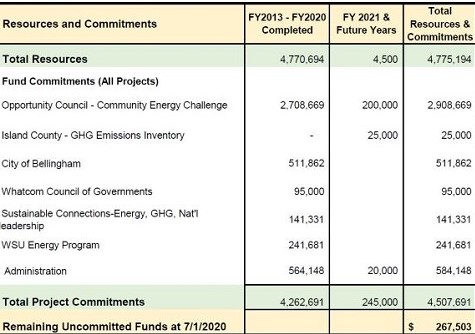Global warming is one of the most pressing environmental and economic challenges the world faces. We expect this global issue to have significant local effects.
Scientists predict that as annual temperatures in the Pacific Northwest rise, the region could see more cases of air pollution-induced ailments like asthma, a dramatic reduction in available water, severe and frequent flooding and storms, and the spreading of diseases like West Nile virus.
The Northwest Clean Air Agency recognizes human activities are contributing to climate change. In addition to regulating stationary sources of air pollution in our region, we are committed to supporting and carrying out local, state, and federal policies and efforts to curb the human contribution of greenhouse gases to the environment.
As part of those efforts, we are investing $4.7 million in local environmental projects.
We evaluate projects proposals according to five criteria, through a competitive, public process:
- Potential greenhouse gas reduction
- Applicant’s experience and past performance
- Achievable scope of work and proposed schedule
- Benefits within NWCAA’s jurisdiction
- Communications and public education
The NWCAA Board of Directors approves and awards funding.
We’re proud to have contributed $2.9 million to help the Opportunity Council expand its Community Energy Challenge, as well as support projects that include solar power, a GHG inventory for Island County, and more.
About this project: BP Cherry Point Refinery provided most of these funds ($4.4 million) to help offset carbon emissions from a new ultra-low-sulfur diesel fuel process unit that was installed in April 2013.
Although burning ultra-low-sulfur diesel in cars, trucks, and buses reduces acid-rain-causing sulfur emissions, harmful particulates, and ozone precursors, its production creates carbon dioxide.
